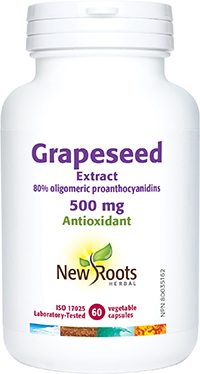Description
Our proanthocyanidin-rich formula protects sensitive tissues and organ systems throughout the body from disease-causing free radicals.
Grape seed extract is a rich bioflavonoid which is used for fighting free radicals and maintaining capillary health. It is very similar to pine bark extract, with a high content of proanthocyanidins. Free radicals do damage in the capillaries in two ways:
-
- by inactivating a compound called 1-antitripsin, whose role is to restrain the enzymes that break down collagen, elastin, and hyaluronic acid; and
- by turning the fats in the cell membranes rancid (lipid peroxidation).


Reviews
There are no reviews yet.